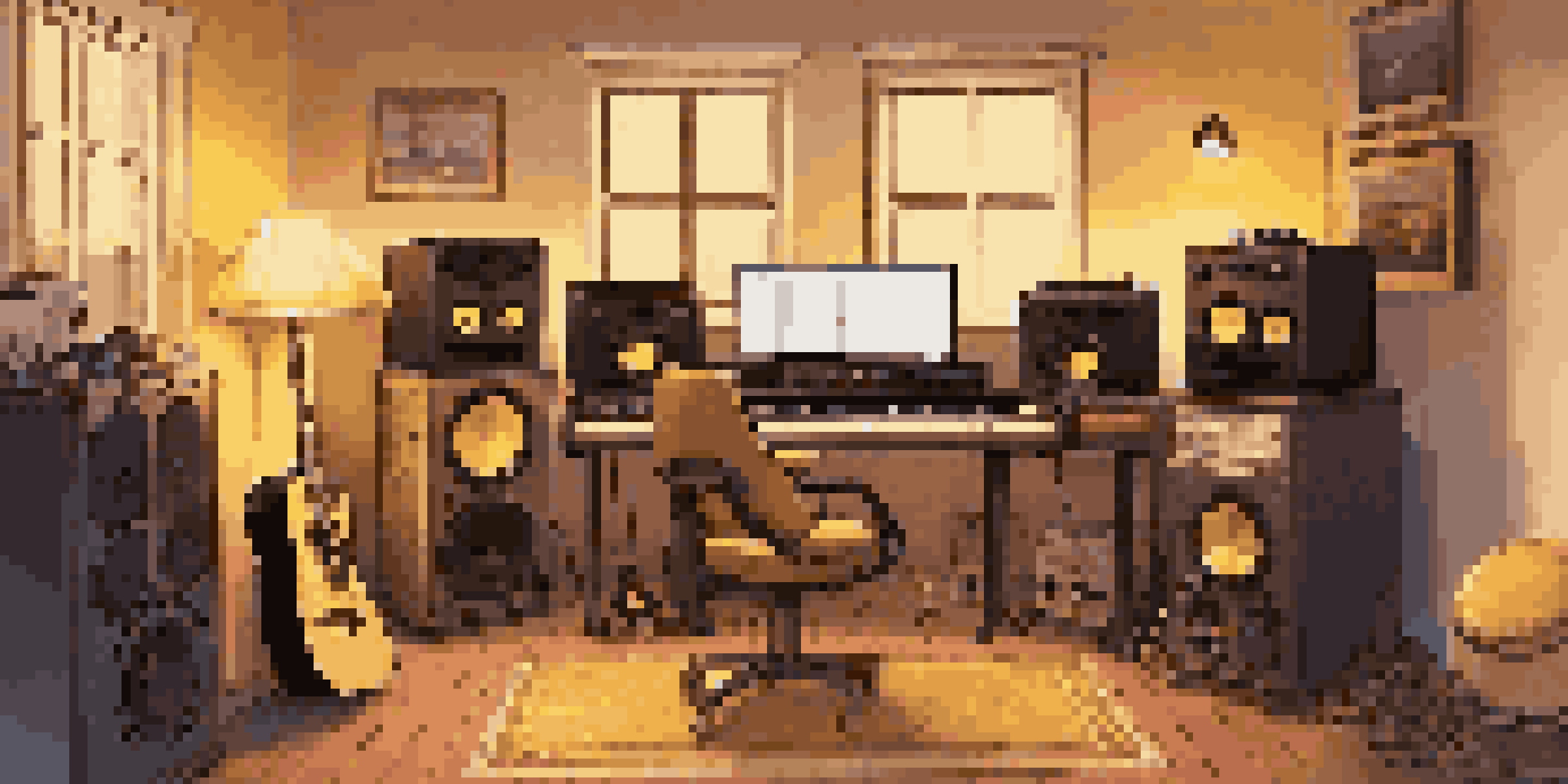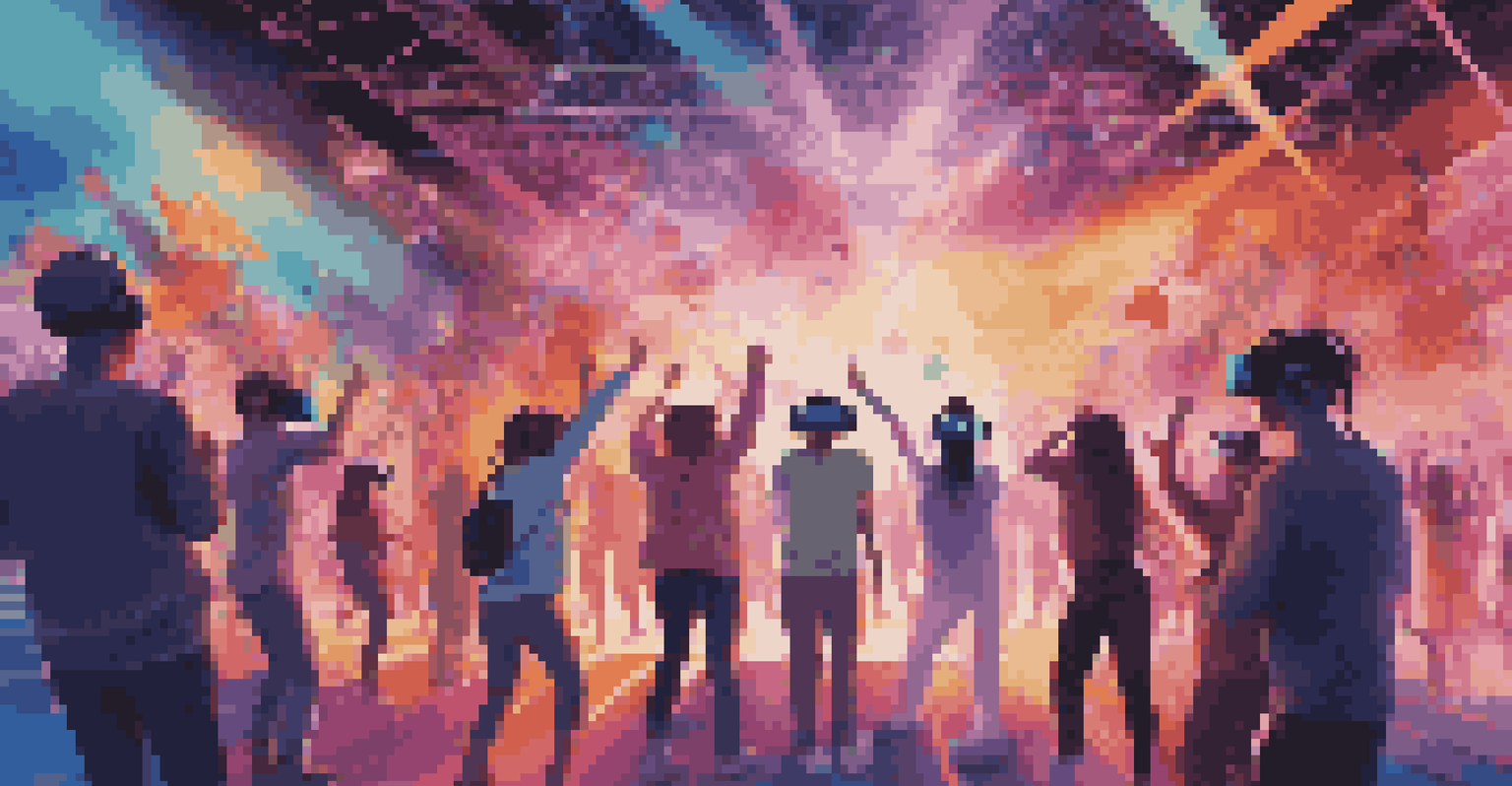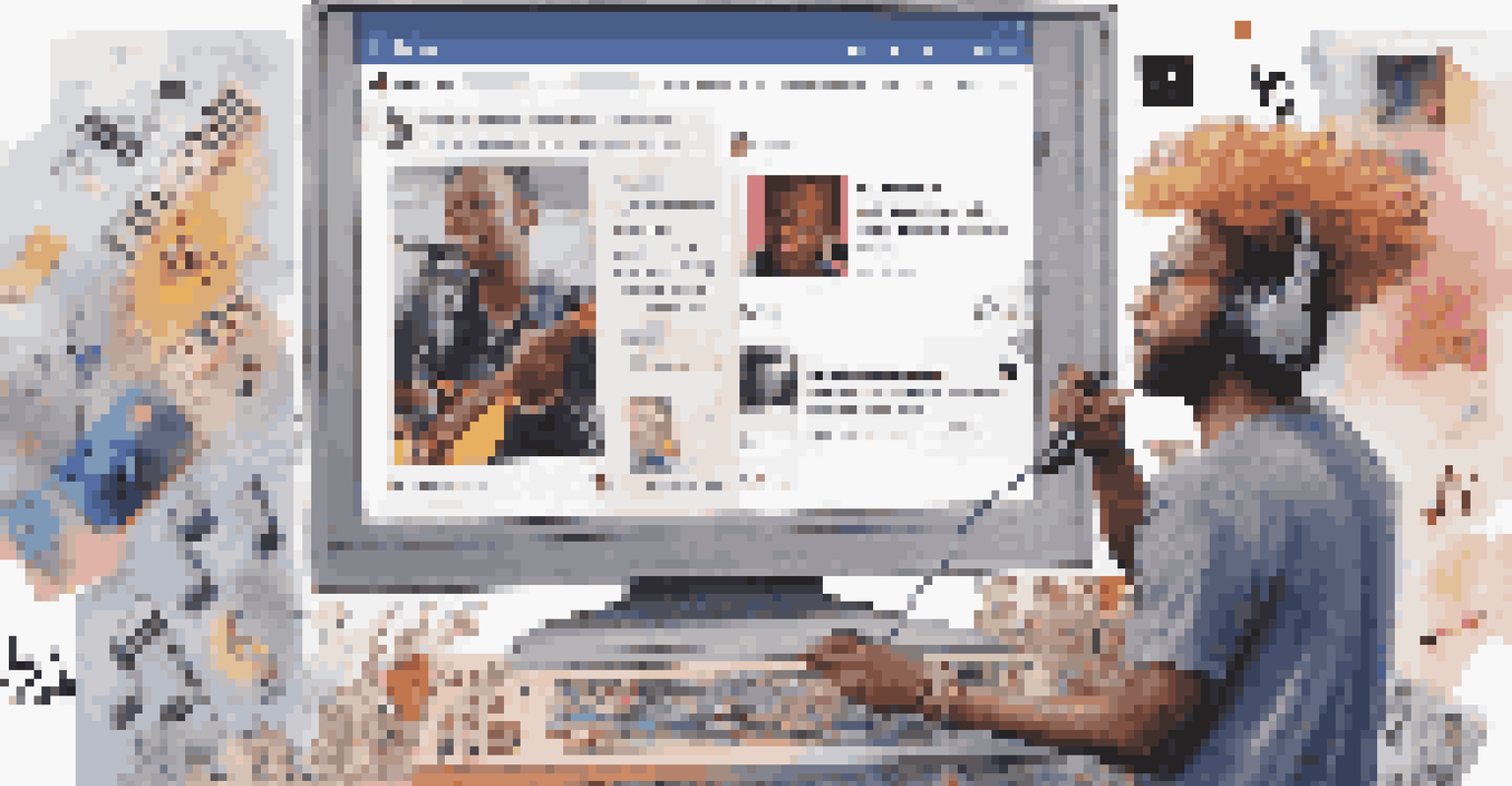The Intersection of Music and Technology in the Internet Age

The Evolution of Music Distribution in the Digital Era
In the past, music distribution was a complex process that involved record labels, physical albums, and store shelves. Fast forward to the Internet age, and now artists can share their work globally with just a click. Platforms like Spotify and Apple Music have transformed how we consume music, making it accessible anytime and anywhere.
Music is an outburst of the soul.
This shift has empowered independent artists to reach audiences without the backing of major labels. For example, countless musicians have gained fame through social media platforms like TikTok, where a single viral moment can launch a career. The democratization of music distribution not only benefits artists but also provides listeners with a diverse array of options.
However, this ease of access comes with challenges, such as the saturation of the music market. With millions of songs available, how does one find the next favorite track? The answer lies in technology's ability to personalize recommendations, making it easier for listeners to navigate this vast ocean of sound.
How Streaming Services Changed the Music Landscape
Streaming services have revolutionized how we listen to music, shifting from ownership to access. Instead of buying albums, listeners now pay for subscriptions that grant them a library of millions of songs at their fingertips. This has fundamentally altered not only consumer behavior but also how artists approach their craft.

With the rise of streaming, artists must now consider how their music fits into playlists and algorithms designed to promote discovery. For instance, a catchy hook can lead to a spot on a popular playlist, significantly increasing an artist's exposure. This new paradigm shifts the focus from traditional album sales to consistent content creation and audience engagement.
Music Distribution Has Evolved
The digital era has transformed music distribution, allowing independent artists to reach global audiences without major label backing.
Moreover, streaming services have introduced new revenue models, with artists earning money per stream rather than per album sold. While this has its benefits, it also raises questions about fair compensation for creators, prompting ongoing discussions about how to balance innovation with artist rights.
The Role of Social Media in Music Promotion
Social media has become a critical tool for artists to promote their music and connect with fans. Platforms like Instagram, Twitter, and TikTok allow musicians to showcase their personalities and engage in real-time conversations. This direct interaction fosters a sense of community and loyalty among fans, which can be invaluable for an artist's career.
Technology is best when it brings people together.
For example, TikTok has been instrumental in propelling songs to viral status, often leading to increased sales and streams. A catchy dance challenge or a relatable video can turn an unknown track into a chart-topper overnight. This phenomenon highlights how the Internet can serve as a powerful catalyst for music discovery.
However, navigating social media can be a double-edged sword. While it offers opportunities for exposure, the pressure to maintain an online presence can be overwhelming for artists. Balancing creative work with the demands of social media requires a strategic approach to ensure that their artistry remains at the forefront.
Technology's Impact on Music Creation and Production
The advent of technology has transformed not just how we consume music, but also how it's created. Digital audio workstations (DAWs) like Ableton Live and Logic Pro allow musicians to produce high-quality tracks from their own homes. This accessibility has led to a surge in home studios and a more diverse range of sounds in the music industry.
Furthermore, technology enables collaboration across distances, allowing artists from different corners of the globe to work together seamlessly. The ability to share files and ideas in real-time fosters innovation and creativity. For instance, a rapper in New York can easily collaborate with a producer in London, creating a unique fusion of styles.
Streaming Services Reshape Listening
Streaming has shifted consumer behavior from ownership to access, changing how artists create music and engage with fans.
However, the reliance on technology also raises questions about authenticity. Some purists argue that digital production can lead to a loss of the raw, organic sound that characterizes traditional music. Yet, many artists embrace technology as a tool to enhance their creativity rather than replace it.
Artificial Intelligence: The Future of Music Creation?
Artificial Intelligence (AI) is making waves in the music industry, from composing original tracks to analyzing listener preferences. AI tools can generate music that mimics the styles of popular artists, offering endless possibilities for creativity. This technology is not just a novelty; it's becoming a practical resource for musicians seeking inspiration.
For example, AI platforms like OpenAI's MuseNet can compose music in various genres, providing a new way for creators to explore their sound. This raises intriguing questions about authorship and originality—if a machine can create music, what does that mean for human artists? The debate over AI's role in creativity continues to unfold.
Moreover, AI's ability to analyze data can help artists understand their audience better than ever before. By studying listener habits, musicians can tailor their releases and marketing strategies to maximize impact. While AI's potential is vast, it's essential to consider the balance between human creativity and technological assistance.
The Impact of Virtual Reality on Music Experiences
Virtual Reality (VR) is revolutionizing the way fans experience music, offering immersive environments that were once unimaginable. Imagine attending a concert from the comfort of your home, surrounded by stunning visuals that enhance the performance. VR technology is breaking down geographical barriers, allowing people to enjoy live music events regardless of location.
For instance, platforms like Oculus Venues enable users to attend virtual concerts alongside friends, creating a sense of community even in a digital space. This level of engagement adds a new dimension to music consumption, making it more interactive and memorable. As VR technology evolves, the possibilities for music experiences will only continue to expand.
Technology Enhances Music Creation
Advancements like AI and home studios have democratized music production, fostering collaboration and diverse sounds in the industry.
However, this shift also poses challenges for traditional live performances. Artists must adapt their strategies to incorporate these new technologies while maintaining the authenticity of their music. Striking a balance between innovation and the core essence of live music will be crucial as we move forward in this digital age.
The Future of Music in a Technology-Driven World
As technology continues to evolve, the music industry must adapt to the changing landscape. From streaming and social media to AI and VR, the ways we create, share, and experience music are in constant flux. This dynamic environment presents both opportunities and challenges for artists and listeners alike.
Looking ahead, we can expect even more innovative tools that enhance the music experience. The integration of augmented reality (AR) with live performances, for example, could create a hybrid experience that merges the physical and digital worlds. As these technologies become more mainstream, they will shape the future of music in exciting ways.

Ultimately, the intersection of music and technology will continue to drive creativity and connection. By embracing these changes, artists can explore new avenues for expression while building lasting relationships with their audiences. The future is bright, and the possibilities are endless.